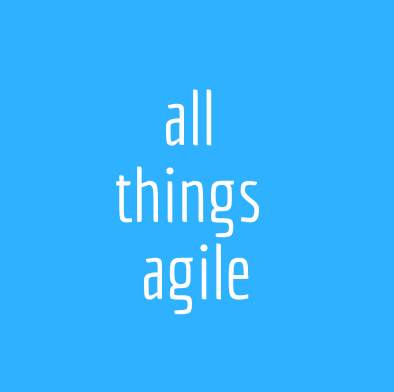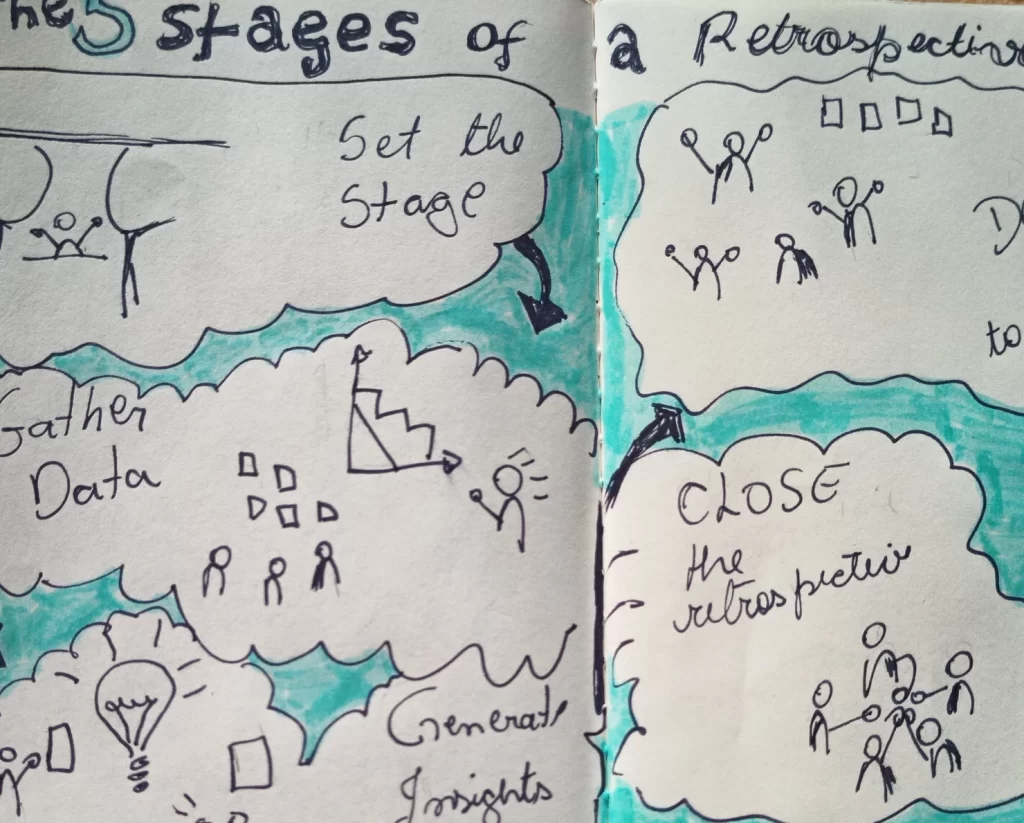
There are many ways in which Agile Coaches help a Product Owner. While it can seem obvious that a beginner Product Owner can benefit from being taught and coached by an Agile Coach, the reality is that the more seasoned the Agile Coach, the more you can support Product Owners of all levels in your organization and even in your private practice.
From my own personal experience, here’s what I believe are key interactions between Agile Coaches and Product Owners that help them succeed in their next level.
Teaching foundational concepts
The reality is that many of the most enthusiastic Product Owners sometimes come into their roles without understanding Scrum, which is the framework from which this role was born. It is also not uncommon that it might be their first contact with Agile. In those situations, you can support your Product Owner by teaching them whatever they need to be successful.
There are many way Agile Coaches help a product owner. When you establish a trusting adult-to-adult relationship with your Product Owner(s), you can teach them in a collaborative, practical way about:
1 – Agile mindset and fundamentals
- Planning regularly and adjusting plans.
- Working towards experimentation, where scope is elastic and emergent.
- Incremental product delivery.
- Small sequential batches of useful work.
- Working close to the customer and other stakeholders, seeking their input.
- Etc.
2 – Scrum framework and their role

- What is Scrum and how it works: values, events and artifacts.
- Understanding the role within the framework: the Product Owner is “accountable for maximizing the value of the product resulting from the work of the Scrum Team”.
- Have clarifying conversations to help the Product Owner draw clear boundaries of their role and expectations if they operate in complicated environments, such as SAFe instead of more streamlined frameworks such as LeSS or Nexus.
3 – Tactics and techniques in Agile product management
The Agile world is filled with amazing techniques to simplify and carry work iteratively and incrementally. Teaching the product owner how to do story mapping, how to write effective user stories, how to create and maintain a backlog are but a few.
These are simple techniques that require a lot of mileage to become good at. But just the attempts at using them unlocks something for most Product Owners, because they will naturally need to think in a different way than they would with a linear, certain plan or with an extensive list of requirements.
I would also add that getting used to release planning (even without story mapping) and sprint planning and how the Product Owner prepares and shows up for these work sessions is quite fundamental.
Mentoring on the role journey
It is especially important to support your Product Owner when they are transitioning into this new role.
A lot of organizations sometimes shortcut the path considering a Product Manager or a Project Manager would be the ideal candidate, but the reality is that sometimes coming in fresh, say, as a developer, is easier than in similar-but-not-quite-the-same roles.
Project Managers typically deal with cost, resource allocation, decisions on dates etc. While they might feel tempted to operate in a similar fashion, it might be sometimes surprising for them that Product Owners however have no say in how many people can work on a product. That they deal with self-organized teams, and the team is who decides how the product can be built. The team estimates how long it can take. If a date is fixed, then the team will argue on scope reduction.
So you help Product Owners understand that and be able to negotiate and inspire their team. You help them collaborate at a deeper level. Product Owners own the why for a product. The team owns the how. The what is collectively decided.
Coaching them forward on their leadership
Product Owners operate in a space with a lot unknown, moving parts and constant change. They are accountable for a product they themselves don’t build. They respond to several types of stakeholders, from customers to sponsors to team members.
It takes a lot of confidence. It takes emotional intelligence to read the room, to involve so many people in conversations and come out of them with agreements. Successful Product Owners feel comfortable with saying “NO” and are able to delegate. And the best ones exercise a lot of horizontal leadership, the one where you influence without authority.
The more you coach on this part, the easier it is for the Product Owner to take flight and own strategy and tactics.
Unlocking their stakeholder superpowers
Product Owners develop a different way of communicating with stakeholders: in a way, they are also facilitators and educators, as they need to come up with plans that change constantly and yet keep most stakeholders satisfied.
The language might be similar to some Product Managers, but not the same. When you support a Product Owner, you want to help them craft a compelling product goal and a vision. A compelling why. From that, roadmaps come to existence, but roadmaps in Agile are not what people call roadmaps in waterfall. In Agile they are sets of alternatives; they are rolling roadmaps. They are not a promise of every single item to be delivered.
Not to mention that success in Agile is integral from defining value. That varies as per each organization, but it includes an amalgamate of customer success, market strategy and uncompromising quality. From a good understanding of what value is for their organization and teams, prioritization should come easily to the Product Owner.
Whenever you see a Product Owner struggling to define the single most important priority citing 2 or 3 items that cannot wait, here’s a hint that you can help them reformulate what value is. It’s similar whenever you see a Product Owner thinking that any and every client request must be accepted.
And ultimately, an important superpower you should help your Product Owner to unlock is their ability to accept that good enough in the hands of the customer beats perfect in documents and ideas, because you can only respond appropriately to what you know. That’s the famous feedback loop and it should not be mysterious.
As you can see, there’s an amazing superpower of new language (and tools) with which you can help your Product Owner immensely.
Coaching the organization about the role of the Product Owner
And yes, there’s help you can offer to your Product Owner that involves others in the organization. Their manager, their stakeholders. Anyone you might have access to that can clear the path so that the Product Owner’s success is inevitable.
To be fair, not even their organizations understand this role sometimes. Helping managers understand how they can support their Product Owners is a task any Agile Coach should feel prepared to take. There is the obvious removal of organizational impediments such as red tape, but there is also a responsibility among senior managers and executives to set clear and transparent strategic priorities. And helping them understand that too many initiatives at once dilutes focus, and that diluted focus is linked to longer delivery times and less than ideal quality. Not to mention the human cost of such pressure.
As an Agile Coach, sometimes you’d be the one saying the unspeakable truth. You would be the one facilitating the challenging conversations. And sometimes you help by letting people make mistakes and you help reveal the learning that is staring everybody in the face.
And sometimes, you just champion, encourage and remain silent and listen. You know, maybe at that moment your Product Owner just needs a rubber duck.
And remember…
As you read, there are quite many ways in which Agile Coaches help a Product Owner. It is possible that a Product Owner works for years in a defective Agile space and have misconceptions about all of the above. One of the best ways to help is to remember that even when you teach you are a coach: don’t arrive guns-a-blazing teaching the way of the Agile land. Tell your Product Owner what you are seeing, offer help and be open to whatever answer they give you.
Most Product Owners are more than happy to work with an Agile Coach, so long as you respect their intelligence and follow their agenda for growth and development.
What does your experience coaching Product Owners say?



